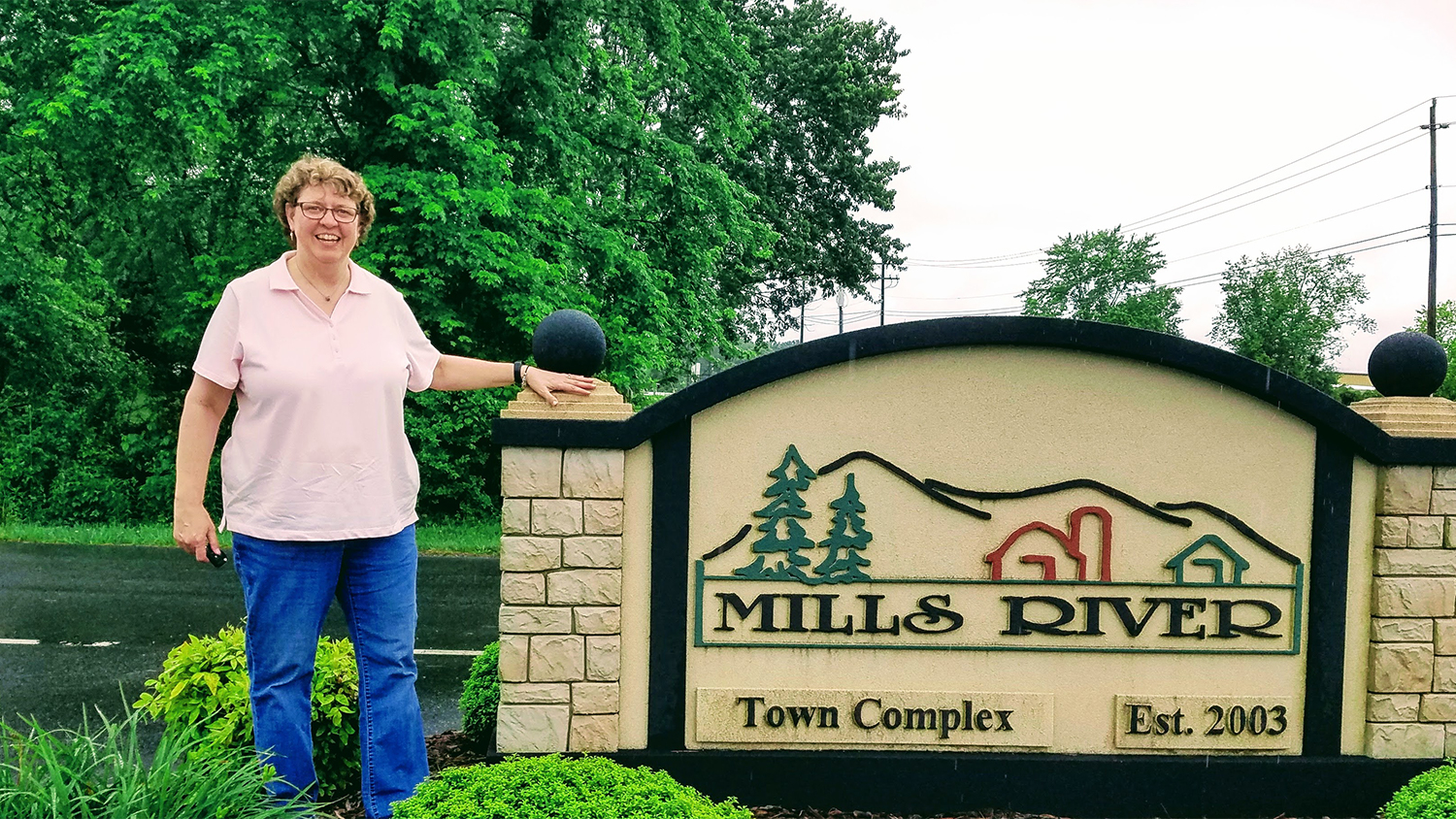Women in Natural Resources: Meet Charlynne Smith

Charlynne Smith is the Recreation Resources Service director for the Department of Parks, Recreation and Tourism Management. She graduated with a degree in parks, recreation and tourism management from NC State in 1988 and a master’s degree in natural resources in 1997. After earning her master’s degree, Smith joined the NC State College of Natural Resources as a research associate with the Department of Parks, Recreation and Tourism Management and the Center for Geospatial Analytics.
Smith earned her Ph.D. in parks, recreation and tourism management in 2017, and she was hired as director of the Recreation Resources Service a year later. In her current role, Smith directs a team of four regional consultants, who, alongside her, deliver technical assistance, applied research and continuing education related to park and leisure services for North Carolina.
We recently spoke with Smith about her experience as a woman in the field of natural resources. The following Q&A is a part of a Women’s History Month series highlighting the outstanding contributions female faculty and staff have made to the College of Natural Resources.
What has it been like as a female to study within your field and pursue your career?
I actually started in the field through summer jobs prior to starting my degree. I worked at a residential Girl Scouts’ camp as a counselor, waterfront director and then as a program director. I was excited to discover the parks, recreation and tourism management degree when visiting the NC State Open House, where I met Dr. Beth Wilson. I discovered I could major in a field that built on experiences I enjoyed. My first full-time job was as a park ranger. Having worked for the Girls Scouts, where all staff are women, it never occurred to me not to jump in and complete a task when I held positions in predominantly male organizations.
What challenges have you faced in pursuing your degree(s) and/or career?
I’ve been fortunate to have multiple career paths before me, but deciding the timing and path to take presented a challenge. I’ve been a park professional, educator and researcher. All three of those identities are present in the work I take on every day. You learn where to pull knowledge and experience based on the task at hand. My first full-time position as a park ranger required me to complete training at the Charlotte Police Academy, which was both physically and mentally challenging. After that, I was prepared to face anything: job interviews, working for the public and being confident when I was in uncomfortable situations.
Do any have specific memories of experiences in your career that stick with you?
My initial path was in positions where I did both environmental and historical interpretation, and I loved it. My next path led to a master’s degree in natural resources, with a focus on spatial information science applied to park planning. When I came to work for Dr. Hugh Devine at the Center for Geospatial Analytics, I applied GIS to natural and cultural resource management. The work the center did for the National Park Service (NPS) included teaching GIS. It was often cheaper for the NPS to fly out two trainers rather than to send trainees to Raleigh. Traveling to National Parks to teach the basics of using GIS software and helping park staff apply the use of spatial tools to better understand and accomplish their work was as amazing as learning about the environments in which they worked. This was just a new form of interpretation for me. I was able to travel to Shenandoah [National Park in Virginia], San Francisco, Hawaii and the Grand Canyon.
Tell us about someone who supported and encouraged you to pursue your work.
I come from a family with strong independent women as role models. Not always independent by choice, mind you, but they faced challenges with help from friends, family and above all, faith. I was probably a junior in undergrad when I took a psychology class in child development and read that I was in at least three separate categories of children, any one of which indicated I shouldn’t even be in college. That was news to me, and I disregarded it. I was expected to attend college and had confidence instilled in me that I would do well. The support throughout my career from family and friends is a strength I carry with me. Along the way, I also had faculty members, co-workers and colleagues serving as mentors. My husband was my main support as I completed my Ph.D. while working full-time.
Why are you passionate about your work?
I am driven by seeing the impact my parks and recreation colleagues across North Carolina and our country make every day. The pandemic has only highlighted the work our field accomplishes, often without recognition, for the communities they serve. When I directed the Supervisors’ Management School for the Department of Parks, Recreation and Tourism Management and National Recreation and Park Association for over 15 years, I annually spent a week with professionals from all over the U.S. I’d come away each year energized, engaged and proud of our profession.
What advice would you give to young female professionals entering your field?
Wisdom that was shared with me not that long ago and by someone younger than I was is to be yourself. Sometimes as we navigate to move up or change our path, we think we need to change. That’s not always necessary. Do what you love. Most importantly, always take the opportunity to learn something new each day. Never stop learning.
This post was originally published in College of Natural Resources News.
- Categories: